
Royal Air Force (RAF) Bomber Command had been formed in 1936, at a time when the vast majority of the RAF’s aircraft were still biplanes. Bombers were the great fear of the inter-war period; popular fiction and the press had stoked public concerns about bombing. Bombing promised the ability to knock out an enemy quickly and efficiently, while avoiding the even greater spectre of another land war like that on the Western Front. The need for bombers, and to defend against them, was one of the cornerstones of the case used to justify the continued existence of the independent RAF.
Despite the inter-war fears, when Bomber Command went to war in September 1939 it was not a success. German short-range bombers were able to inflict serious damage on cities such as Warsaw and Rotterdam, and later London, but Bomber Command faced the additional challenges of having to operate over very long distances from their bases in England. Daylight raids proved easily intercepted and prohibitively expensive, and a switch to night raids crippled accuracy.
The Command’s aircraft were inadequate, their equipment and training lacking, and their numbers too few to have any real effect. However, for the first years of the war Bomber Command remained the only way that Britain could maintain even the illusion of continuing an effective fight against Germany. The sound of bombers droning nightly into the dusk to attack the German homeland was crucial for propaganda and public morale.
Esta historia es de la edición Issue 117 de History of War.
Comience su prueba gratuita de Magzter GOLD de 7 días para acceder a miles de historias premium seleccionadas y a más de 9,000 revistas y periódicos.
Ya eres suscriptor ? Conectar
Esta historia es de la edición Issue 117 de History of War.
Comience su prueba gratuita de Magzter GOLD de 7 días para acceder a miles de historias premium seleccionadas y a más de 9,000 revistas y periódicos.
Ya eres suscriptor? Conectar
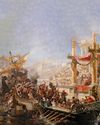
NAUMACHIA TRUTH BEHIND ROME'S GLADIATOR SEA BATTLES
In their quest for evermore novel and bloody entertainment, the Romans staged enormous naval fights on artificial lakes
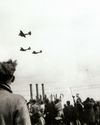
OPERATION MANNA
In late April 1945, millions of Dutch civilians were starving as Nazi retribution for the failed Operation Market Garden cut off supplies. eet as In response, Allied bombers launched a risky mission to air-drop food
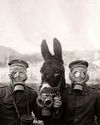
GASSING HITLER
Just a month before the end of WWI, the future Fuhrer was blinded by a British shell and invalided away from the frontline. Over a century later, has the artillery brigade that launched the fateful attack finally been identified?
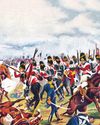
SALAMANCA
After years of largely defensive campaigning, Lieutenant General Arthur Wellesley went on the offensive against a French invasion of Andalusia

HUMBERT 'ROCKY'VERSACE
Early in the Vietnam War, a dedicated US Special Forces officer defied his merciless Viet Cong captors and inspired his fellow POWs to survive
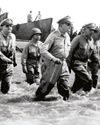
LEYTE 1944 SINKING THE RISING SUN
One of the more difficult island campaigns in WWII's Pacific Theatre saw a brutal months-long fight that exhausted Japan’s military strength

MAD DAWN
How technology transformed strategic thinking and military doctrine from the Cold War to the current day
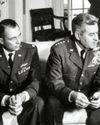
BRUSHES WITH ARMAGEDDON
Humanity came close to self-annihilation with the Cuban Missile Crisis, Broken Arrows’ and other nuclear near misses
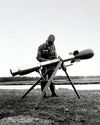
THE DEADLY RACE
How the road to peace led to an arms contest between the USA and USSR, with prototypes, proliferation and the world’s biggest bomb
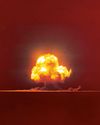
THE MANHATTAN PROJECT
Einstein, Oppenheimer and the race to beat Hitler to the bomb. How a science project in the desert helped win a war